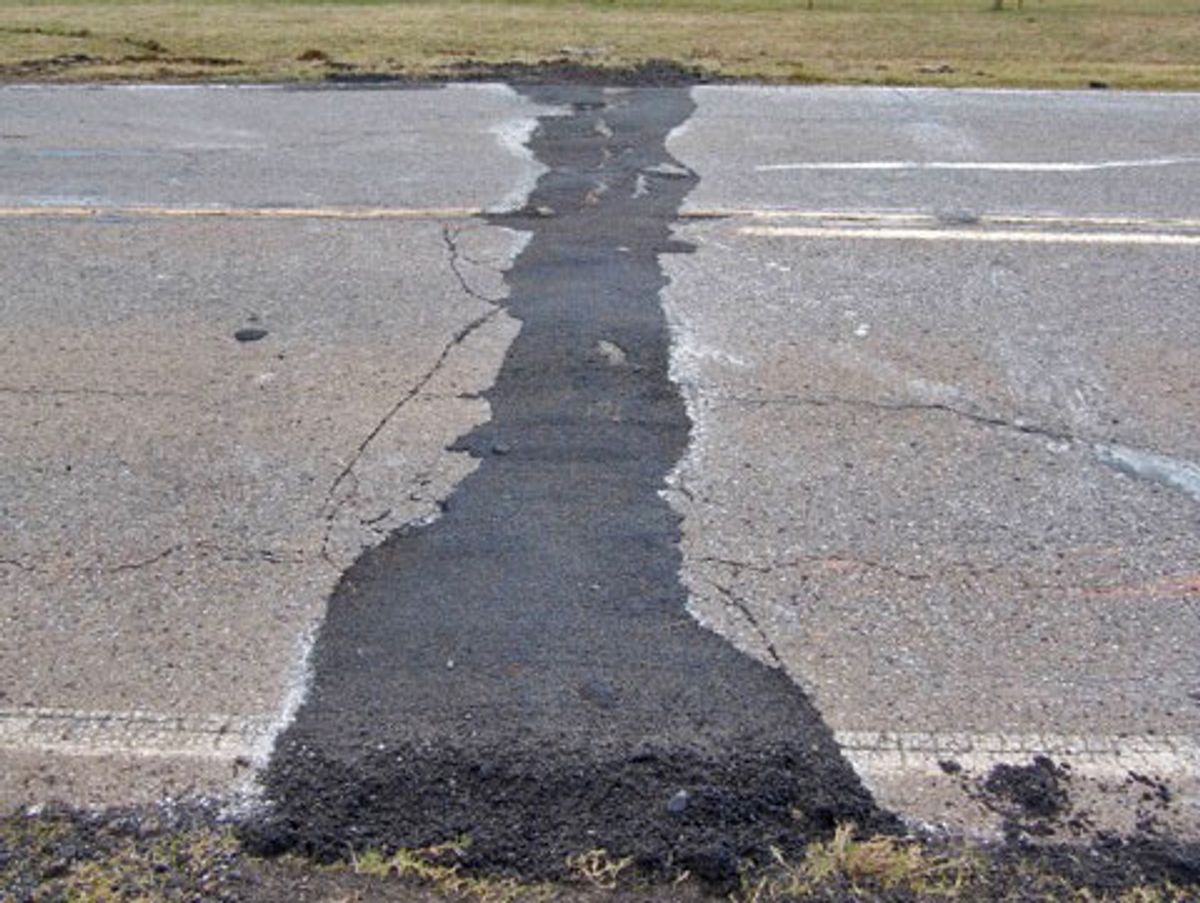Hydraulic fracturing to release gas or oil trapped deep underground in shale rock is of course highly contested. In environmental circles and on the political left, indeed, the "politically correct" view seems to be that fracking is just as bad as nuclear energy, however much each might contribute to energy security or greenhouse gas reduction. The wider mainstream view—and this is the attitude explicitly embraced by the Obama administration—is that fracking can be good if properly regulated to minimize negative effects on the environment, especially on water. That position may be complicated, however, by results of new study appearing Friday in Science, which strongly suggest that wastewater injection in fracking operations can significantly aggravate earthquake risks.
The study, led by Nicholas van der Elst of Columbia University's Lamont-Doherty Earth Observatory, finds that a severe Chilean earthquake on 27 February 2010 triggered, less than a day later, a significant earthquake in Prague, Oklahoma, where there was a set of water injection wells. Unusual seismic activity continued near Prague for almost two years until late November 2011, when an earthquake destroyed 14 homes and injured two people, according to a Lamont-Doherty press release. Then, in April 2012, a major earthquake in Sumatra triggered yet another earthquake near the Prague wells, where injection continues.
The Science article builds on an earlier study that appeared in Geology last March, in which a team of Lamont Doherty scientists hypothesized that high-pressure injection of water in a seismically active area could cause a known fault to "jump." “When you overpressure the fault, you reduce the stress that’s pinning the fault into place and that’s when earthquakes happen,” said Heather Savage, a co-author of both the older and newer reports.
Besides affecting Prague, the Chilean quake also is believed to have set off a temblor in Trinidad, Colorado, where suspicions about water injection and seismicity already had attracted the attention of the U.S. Geolorgic Survey. Japan's devastating earthquake of March 2011 is thought to have triggered a temblor in the West Texas town of Snyder, where high-pressure water injection was taking place.
The van der Elst research in Science appears together with other articles about how human activity may be affecting earthquake risks.
Photo: John Leeman/The Earth Institute, Columbia University



